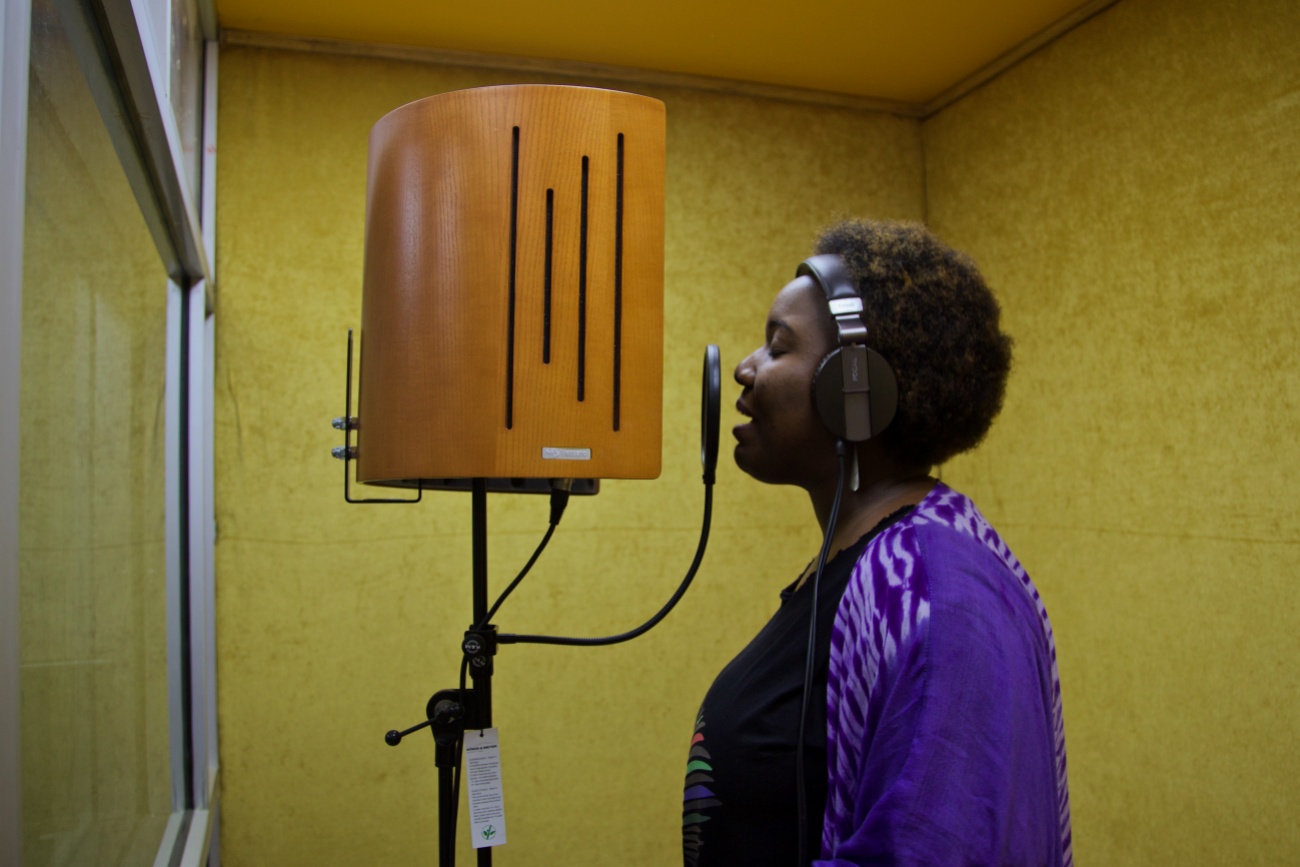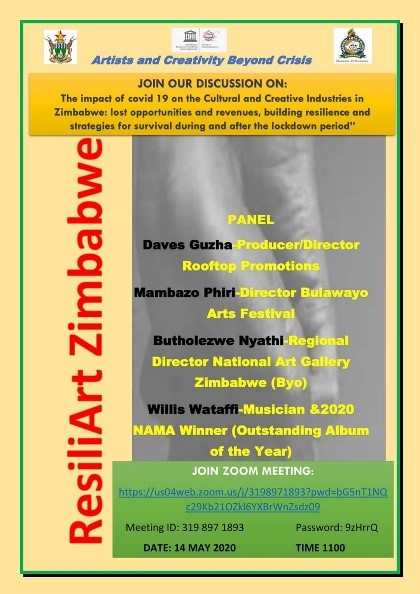Reshaping Cultural Policies for the Promotion of Fundamental Freedoms and the Diversity of Cultural Expressions in Zimbabwe

Zimbabwe is currently part of the 16 partner countries of the project “Re|Shaping Cultural Policies for the Promotion of Fundamental Freedoms and the Diversity of Cultural Expressions.” This cultural policy project is a follow up to “Enhancing fundamental freedoms through the promotion of the diversity of cultural expression,” both funded by Swedish International Cooperation Agency (Sida). Zimbabwe is one of six countries to have been selected for both projects, given their commitment to the development of cultural and creative industries demonstrated during the first project. The country’s first Quadrennial Periodic Report was submitted to the 2005 Convention in 2016, followed by Culture for Development Indicators report in 2017. These reports indicate a number of policies and measures that Zimbabwe implemented in order to stimulate the creative economy and support cultural workers more effectively. The revision of the National Culture Policy of 2006 resulted in an updated version that aligns more closely with National Constitution, conventions, protocols and agreements. A particular attention was paid to reflect the African Union’s Agenda 2063 and the African Union Charter for Cultural Renaissance into their Policy. The reporting exercise, which included consultations of cultural professionals and artists, also revealed various challenges on the ground. Through the new Sweden-funded project, Zimbabwe aims to address these newly identified issues. The National Arts Council of Zimbabwe will lead the project implementation. The country’s second Quadrennial Periodic Reports (QPR) is to be submitted to UNESCO by 30 April 2020.
A multi-stakeholder consultation was organised on 3 December 2019 in Harare, Zimbabwe. The consultation gathered artists, cultural operators, media professionals as well as public institutions and representatives of various ministries. Speaking at the workshop, the Director of Arts and Culture in the Ministry of Youth, Sports, Arts and Recreation, Dr Biggie Samwanda highlighted the importance of the QPR as it “highlighted the challenges, strengths and weaknesses, and the measures taken to mitigate the problems in the creative industry”. Participants agreed that the consultation came in at a strategic period where Zimbabwe has been organizing several activities to promote the CCIs, to highlight the recent launch of the National Arts, Culture and Heritage Policy, which is set to guide the creative economy of the country. Farai M’pfunya, member of the UNESCO Expert Facility concluded the multi-stakeholder consultation workshop organised by the UNESCO Regional Office for Southern Africa in cooperation with the National Arts Council of Zimbabwe by a Chinese quote “A journey of a thousand miles begins with a single step".
consultation_zimbabwe_c_biggie_samwanda.jpg

The national training workshop was held in Harare, Zimbabwe, from 15 to 17 January 2020, led by Farai Mpfunya, member of the 2005 Convention Expert Facility. The training revolved around the 2005 Convention Monitoring Framework and the process for policy monitoring in order to produce Zimbabwe’s periodic report. The training workshop included presentations, sharing of local, regional and international experiences on participatory engagement in the elaboration of the periodic report, question and answer sessions, breakaway working group sessions and plenary discussions. The national team appointed roles and responsibilities of everyone for the data collection and a team of report drafters was established. Additional presentations were made by the Zimbabwe national statistics office (ZIMSTAT), the Censorship Board and the National Arts Council. The National Team started to gather relevant policies and measures to report in the periodic report. The sessions on civil society engagement and participatory mechanisms allowed public sector officials and civil society to engage constructively. Additionally, ZIMSTAT offered to help develop new tools for data collection while the Censorship Board invited the sector to submit specific recommendations for the review of the Censorship Act. One of the outcome of the workshop was the proposal from the National Team to be constituted as a Working Group on Cultural Expressions.
whatsapp_image_2020-01-18_at_11.48.18.jpeg

A ResiliArt illustration contest was organised by the UNESCO Regional Office for Southern Africa, in partnership with the Blazer magazine. More than 200 talented young and emerging illustrators took part in the contest. Entrants submitted traditional illustrations (pencil, charcoal, pen, ink, etc.) and modern illustration (digital art, vector graphics, etc.) with narratives that demonstrated the power of art and creativity in the face of challenges posed by COVID-19. Specifically conceived for young people between the ages of 16 and 25 from Southern Africa (Botswana, Lesotho, Malawi, Mozambique, Namibia, South Africa, Swaziland, Zambia and Zimbabwe), the ResiliArt illustration contest aims to promote and enhance artistic and creative skills of young people during the time of the COVID-19 crisis. Four prizes were awarded (first prize, second prize, third prize and audience award). The winners were announced on 1 June 2020, after a committee composed of creatives evaluated the submitted entries.
Webnews ResiliArt Illustration Contest: https://en.unesco.org/news/resiliart-illustration-contest-exhibits-young-talent
Link to see the entries to the contest: https://blazermag.com/resiliart/
The National Arts Council of Zimbabwe organised two ResiliArt debates on 7 and 14 May 2020. Four themes were particularly addressed, including the constraints artists face as a result of the confinement measures; financial consequences of the health crisis on creative professionals; measures that governments, international organisations and the private sector, among other actors, can put in place to support artists during and following this crisis; and how to develop cultural policies and funding models that adequately respond to the crisis.
Gathering more than 100 participants, the debates also highlighted that participation by all stakeholders in cultural governance was essential to frame the policy landscape for the recovery processes. Including rural areas to this process has also been deemed crucial. Participants stressed the challenges for artists and cultural professionals to disseminate their work on digital platforms, most notably in relation to copyright issues.
Stakeholders of the culture and creative industries validated Zimbabwe’s periodic report at a public presentation organised on 16 October 2020 in Harare, Zimbabwe, by the National Arts Council of Zimbabwe in close cooperation with the UNESCO Regional Office for Southern Africa. The meeting, which was facilitated by Mr. Farai Mpfunya, a member of the 2005 Convention Expert Facility, saw cultural stakeholders including artists, media professionals, and civil society representatives reflecting on the report and validating it for onward transmission to UNESCO. Representatives from the Ministry of Information, Ministry of Youth, Sports, Arts, and Recreation and Ministry of Tourism also participated in the public presentation.
See full press release: https://en.unesco.org/news/culture-stakeholders-validate-zimbabwes-quadrennial-periodic-report
zimbabwe_pp.png

